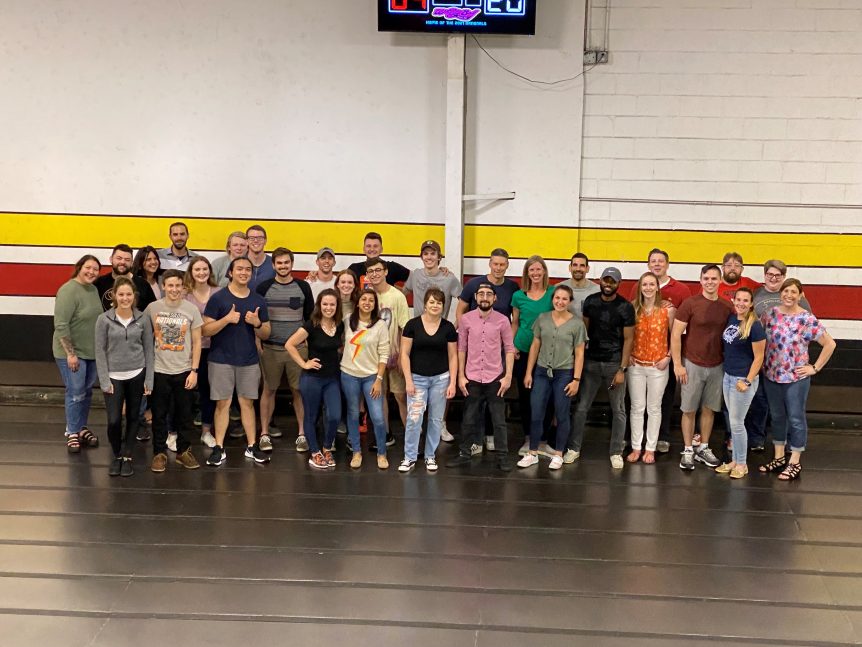More than a year and a half into the coronavirus pandemic, another health crisis is having a moment: burnout.
Burnout has been defined as an occupational hazard since the World Health Organization officially added it to its International Classification of Diseases in 2019. The agency defines burnout as an “occupational phenomenon” that results “from chronic workplace stress that has not been successfully managed,” and it produces three effects: exhaustion, cynicism about one’s job and reduced “professional efficacy.”
The psychic weight of COVID-19 has caused many employees to experience a variety of factors that can lead to burnout: heavier workloads, a lack of support and resources and insecurity about one’s job performance.
A poll found 95 percent of employees surveyed said they were thinking about leaving their jobs, with most citing burnout as the reason. A separate poll from Gallup found that workers’ life evaluations have plummeted during the pandemic, with 61 percent of women and 52 percent of men reporting they felt more stressed than before.
For most employers, preventing and coping with burnout is just good business sense, as neglecting to do so can lead to lower productivity, higher turnover and other factors that can hurt a company’s profitability.
“You can’t put a price tag on that,” said Michelle Gilbert, vice president of public relations at Philadelphia-based Comcast Cable, which has around 4,000 employees in Michigan. “Well, actually, you can, and it’s very expensive to lose employees.”
But if burnout is a workplace-centric problem, some employers are realizing the onus is on them to provide solutions. From companywide holidays and increased paid time off to child care and mental health services, employers in and around Detroit are addressing burnout in a systemic way by making changes to the work environment.
Many employers have expanded mental health and wellness services since the pandemic hit.
Detroit-based Rocket Mortgage rolled out a virtual program that educates employees on how to identify and respond to signs of mental illness, including burnout, through interactive Q&A sessions, role-playing and training modules. Rocket also pivoted from onsite meditation to virtual sessions, using the wellness app Journey, while increasing the number of sessions and types of meditation in the process.
When it comes to managing stress at AccumTech, a technology company in Ann Arbor, Andrew Madonna, vice president, and Jennifer Beattie, the employee engagement manager, have emphasized fitness and engaging employees in fun activities.
In addition to buying its roughly 35 employees Fitbits last year, AccumTech partnered with Wellable, an app that crafts various wellness challenges on everything from nutrition to financial health. This means workers are being paid to prioritize their health and well-being in the workplace.
“I didn’t want to just focus on steps,” said Beattie. “We needed to focus on those different aspects of wellness that are not just exercise, that really take into account mental health, as well.”
To help employees stay engaged, AccumTech devised “Quarantine Olympics,” which split employees into teams to compete in different wellness-related games — an event both Madonna and Beattie said the company plans to continue in the post-pandemic future.
AccumTech’s creativity doesn’t stop there. To combat the doom-and-gloom news cycle, the staff broadcasts their own “positive” newscasts every Wednesday, featuring video segments with everything from one-on-one interviews between employees to cooking demonstrations.
“We try to support every scenario holistically with a slew of different programs because not one solution is going to be for everyone,” said Beattie.
Honest communication between higher-ups and employees is also important, said multiple companies surveyed by Crain’s for its annual Cool Places to Work report, such as team member assistance programs, which virtually connect employees and their dependents to third-party mental health and counseling experts — all confidential and on the company’s dime.
According to the Cool Places to work survey, some firms ramped up their well-being initiatives and found creative ways to support for workers juggling virtual schooling or new caregiving responsibilities during the pandemic.
Several companies, including AccumTech and Environmental Consulting and Technology or ECT, an environmental solutions firm headquartered in Gainesville, Fla., that has offices in Detroit and Ann Arbor, conduct regular check-ins and anonymous surveys where workers can feel comfortable to voice their concerns without fear of backlash.
“One significant thing for us is starting with ground-up feedback and data,” said Keleigh Williams, ECT’s chief corporate officer. “When an employee knows that the leadership has considered their thoughts, looked at the trend lines and built a plan with them in mind — boy, does it go a long way.”
Ane McNeil, chief human resource officer and senior vice president of Livonia-based nonprofit Trinity Health Michigan and Trinity’s southeast regions, points out that the pandemic did not create burnout, but exacerbated it. This is especially true in certain industries where the stakes are already high, such as health care.
“In my 16 years of working in health care, there’s always been an element of burnout amongst front-line workers,” said McNeil. “In the past, a health care worker may have had a really high element of fatigue, but now, with the pandemic, there’s just this constant burning the candle at every end.”
To support its workforce of more than 22,500, Trinity Health Michigan put together a group of “resiliency rounders,” colleagues who provide “real-time human connection” to other employees, either virtually or in person, especially those who work in particularly demanding areas of the hospital. Rounders may also connect employees with other resources available through Trinity Health Michigan, such as its counseling services or lifestyle medicine program.
Many companies have adjusted their time-off policies, such as increased PTO or companywide holidays.
On top of the “generous” paid time off Rocket Mortgage already offers, the company also added two personal days a year an employee can use at their discretion, said Jim Livingston, the chief people officer for Rocket Companies. Last year, the company also gave every team member an extra day off — they called it an “R&R day.”
Encouraging employees to set aside time for themselves only goes so far if employees feel too swamped to actually take advantage of increased vacation time. That’s why at Livonia-based OHM Advisors, an architecture, engineering and planning firm, lets employees roll over vacation days from the previous year. Company leaders have also tried to model healthy work-life balance behavior by taking time off themselves, said Jon Kramer, the president at OHM Advisors.
Similarly, AccumTech did away with a traditional PTO bank and started offering workers unlimited time off, which Beattie noted helps “alleviate that pressure of having to plan out the whole year.”
After working at high capacity during the peak of the pandemic, some employers have found workers are taking time off en masse.
Marschall Runge, CEO of Michigan Medicine and executive vice president for medical affairs at the University of Michigan and dean of the UM Medical School, said the hospital is short-staffed, but not just from a shortage of workers. Much of the hospital staff worked countless hours and skipped time off to help the health system manage the COVID-19 surges last year.
Now, in 2021, many of those nurses, doctors and clinical staff are taking much needed paid time off they bypassed in 2020.
“It’s not absenteeism, but PTO,” Runge said. “They earned that longer vacation, but it is creating some holes in our staffing right now. I expect that to continue through the fall.”
Financial insecurity can exacerbate burnout, so some employers are providing extra financial support.
“Last year, we paid a work-from-home stipend — $1,000 to each employee,” said ECT’s Williams. The additional incentive has also been useful for attracting new talent. “We’re still extending $250 for each new hire to help set themselves up, and we don’t really care what they spend it on.”
Trinity Health Michigan rolled out a Colleague Assistance Program for employees struggling financially during the pandemic. So far, the program has raised more than $2 million, using funds donated from colleagues and community members, to help employees pay for necessities such as food, medical bills, rent and more.
Last year, Rocket launched its educational program, Rock Academy, which fully covers tuition for certain in-network programs and reimburses up to $5,250 for any out-of-network program.
Burnout has not been felt evenly across the American workforce, with women in particular having borne the brunt of juggling multiple roles, from mother and worker to partner and homeschool teacher, employers noted. Nearly 3 million women have exited the labor force since the start of the pandemic.
“As a woman who’s also a mother and an executive, I feel that women in this timeframe have carried the burden of the extreme contact sport that work-life balance has become during COVID,” said Williams.
When Comcast’s employees struggled to find child care because of the pandemic, the company offered back-up care for children and elder family members.
“It has definitely helped mitigate employee burnout, as it’s taken a great deal of pressure off them as they seek to juggle personal and professional responsibilities,” said Gilbert.
Trinity Health Michigan also set up a study club inside a day care facility next to St. Joseph Mercy Oakland that supervises children as they attend remote schooling and conducts tutoring while parents are at work.
But will these new perks and policies outlast the pandemic? The tentative answer seems to be yes. Several companies surveyed by Crain’s reported higher productivity and said turnover was lower or about the same as pre-pandemic levels.
Even as big-name tech companies like Google try to poach employees amid the labor shortage, Madonna said workers at AccumTech choose to stay because of the work culture.
“There’s no playbook for this,” said Madonna. “I think that’s what we’re all learning.”

